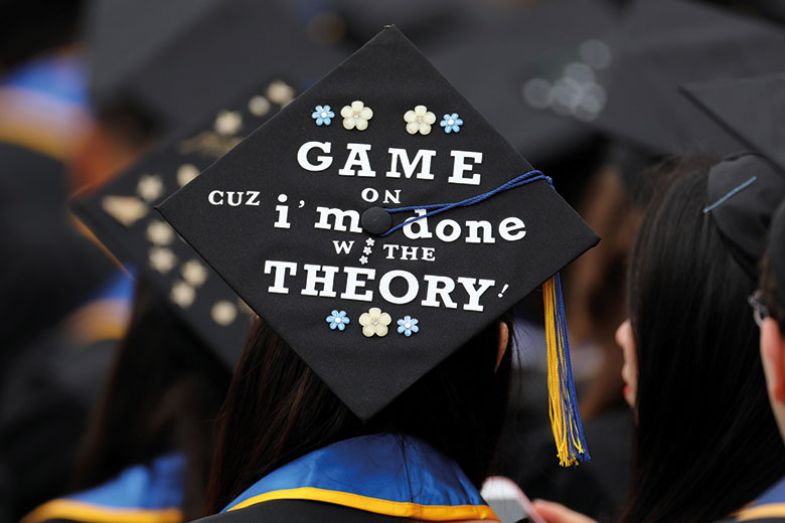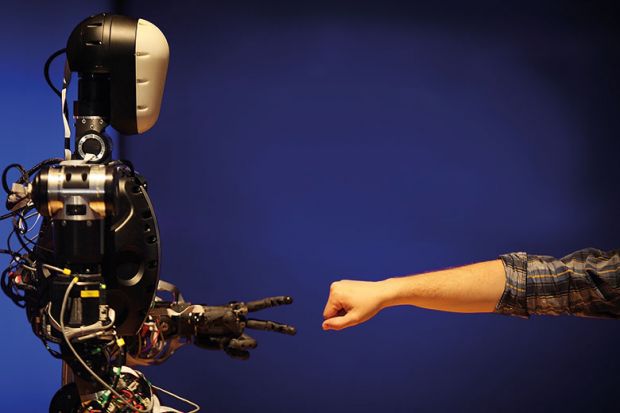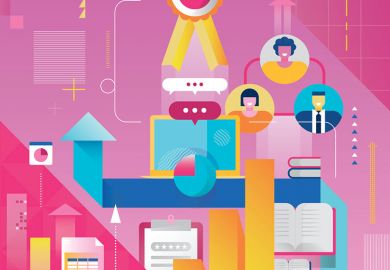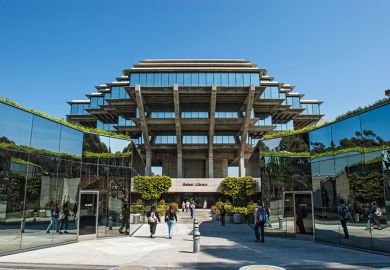Browse the full Times Higher Education World Reputation Rankings 2019 results
How do we prepare our students for the work of the future? Are our current models of developing expertise adequate, and if not, what should we do differently?
Since joining ETH Zurich almost three years ago, I have frequently been asked these questions at major summits on talent development and the future of work.
On questions such as these, everyone has an opinion. As a consequence, many replies are little more than recitations of buzzwords and faddish concepts. My goal here is not to offer another such opinion. Instead, I want to bring the science of human learning into answering these questions.
The sciences of learning have a long history of research on the nature and development of expertise. Let us start with the obvious. It is common knowledge that experts know a great deal about their domain. It is also common knowledge that experts have highly organised knowledge structures that allow them to see things that novices do not see and to act efficiently and effectively.
Therefore, as the argument often goes, if you are training novices to become experts, you need to give them a lot of knowledge and help them structure it in a highly efficient and organised network. It’s pretty simple, isn’t it?
Except it isn’t. One of the major problems is that not all knowledge is explicit, and therefore it cannot always be easily given. There is a substantial amount of knowledge that is tacit.

Explicit knowledge is knowledge that can be externalised, represented, codified and communicated. Laws, principles, theorems, formalisms are examples of explicit knowledge. You can acquire it from reading books, listening to lectures, talking to experts and so on.
Tacit knowledge cannot be externalised, let alone codified or communicated. There are often times when an expert intuits, makes a judgement call, acts spontaneously, and all this without being able to explain how he or she thought of or did that thing. You can’t acquire such knowledge from reading a book or listening to a lecture. You can’t even ask an expert for it; and if you did, you might simply get a shrug of the shoulders and the candid response: “I don’t know, I can’t explain it.”
In fact, research on expertise suggests that experts have not only a large body of explicit knowledge but also a vast reservoir of highly nuanced, situational, tacit knowledge. Expertise is a function of how experts are able to leverage both explicit and tacit knowledge to solve problems. It is a tight coupling between the explicit and the tacit that works the magic.
Now what does this have to do with education?
For most of our modern history, schooling has tended to be organised around the transmission of explicit knowledge. Massive amounts of content are packed into slide after slide, lecture after lecture. The goal is to “give” the novice all the foundation knowledge and skills. There is nothing wrong with that, but it also results in “death by PowerPoint”.
Higher education is no different, with the result that students learn large amounts of content and pass all sorts of tests and exams yet are unable to transfer that knowledge to real-world applications or work. An engineering student can master highly advanced mathematics but find it difficult to apply that to solve engineering problems in practice. A medical student can cram in prodigious amounts of knowledge about anatomy yet find it difficult to recall shortly after the final exam, let alone use it for diagnoses during clinical practice. You get the idea. Unsurprisingly, decades of research on human cognition and learning consistently show that such transfer is not only hard but rare.
To be clear: explicit domain knowledge is important; novices need to be taught, and experts must teach them. The problem is that we are teaching them in ways that tend to exclude tacit knowledge, largely because explicit knowledge is mostly decontextualised from the actual disciplinary contexts in which it will be used.

Allow me to illustrate this problem of decoupling with a thought experiment.
Imagine a carpenter with a new apprentice. Suppose the carpenter first makes the apprentice learn a lot of mathematics. After all, a good carpenter must be good with numbers, measurement and geometry. Then the novice is made to learn a lot of physics. A good carpenter must also have a good understanding of forces and equilibria. The list goes on. Perhaps a good carpenter must also be able to pass tests on this knowledge, even if the tests have nothing to do with carpentry. And only then is the apprentice allowed to touch a saw, to pick up a piece of timber and to engage in the actual practice of carpentry.
Of course, the carpenter is more likely to take the apprentice to the shed and engage in the authentic practices of carpentry. All knowledge and skills – explicit and tacit – that need to be learned are situated in the actual practice of carpentry.
It should be clear by now that if the primary focus of education remains on explicit knowledge, then it will hinder the optimal development of expertise. If, however, teaching can couple the explicit with the tacit, it will positively influence the development of expertise. In turn, this will also increase the likelihood of transfer to authentic practice.
Enter technology and artificial intelligence. Another question people often ask is, “Will AI replace teachers in schools and universities?”
My response is simple. To the extent that our teaching is organised around explicit knowledge, knowledge that can be represented and codified, teachers will be replaced. Machines can deal with codified knowledge rather easily.
In contrast, it will be much harder for machines to deal with tacit knowledge. Therefore, the more we design learning to couple the explicit with the tacit, in ways that are consistent with the science of human learning, the lower the chance that teachers will be replaced.
Paradoxically, advances in technology and AI may give us no choice but to focus on what makes us more human. Instead of viewing this as a threat, I see it as an opportunity.
Manu Kapur is professor of learning sciences at ETH Zurich. He will be speaking about talent development for the future at the Times Higher Education Leadership and Management Summit, which will take place at City University of Hong Kong from 17 to 19 July 2019.
Register to continue
Why register?
- Registration is free and only takes a moment
- Once registered, you can read 3 articles a month
- Sign up for our newsletter
Subscribe
Or subscribe for unlimited access to:
- Unlimited access to news, views, insights & reviews
- Digital editions
- Digital access to THE’s university and college rankings analysis
Already registered or a current subscriber?








